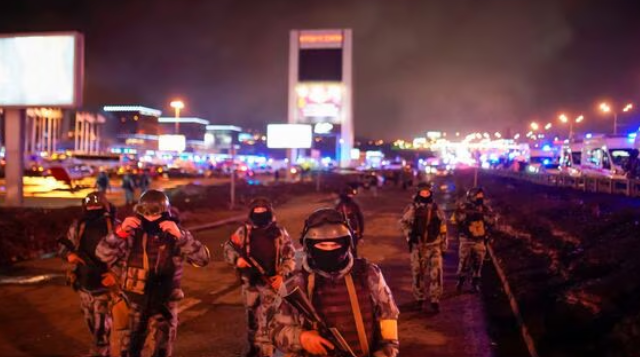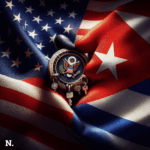In early March 2024, a series of troubling events caught the eye of foreign media and governments. These events led the U.S. Embassy in Moscow to issue an urgent public warning. This story highlights the challenges of public safety, diplomacy, and terrorism in today’s world.
On March 8, the American Embassy in Moscow sent a severe warning to U.S. citizens living in or visiting Moscow. The embassy told them to avoid big events like concerts due to a high risk of a terrorist attack. The embassy believed radicals were planning an attack on large gatherings in the Russian capital.
Soon after, the Russian Federal Security Service (FSB) claimed to have stopped an attack by an Afghan branch of the Islamic State (IS) group. They said the target was a synagogue in the Kaluga area, southwest of Moscow. The FSB had encounters with members of an IS-affiliated cell called Wilayat Khorasan. These militants were plotting an attack on a Jewish institution in Moscow. The operation ended in a gunfight after the militants refused to be arrested, and FSB soldiers neutralized them.
The Kremlin called the U.S. Embassy’s public warning “highly unusual.” Kremlin spokesperson Dmitry Peskov said he did not know what intelligence prompted the U.S. alarm. He suggested there might have been a communication gap between Russian and U.S. security agencies. This incident happened during a time of increased tensions between Washington and Moscow, further complicating their relationship.
A second incident near Moscow, which caused many casualties and injuries, was also linked to the Islamic State group. This confirmed the U.S. Embassy’s concerns and showed that extremist groups continue to pose a global threat, despite the best efforts of international security agencies.
These events highlight the challenges countries face in protecting people from terrorism. They show the complex interaction between intelligence sharing, public safety, and international diplomacy. While the U.S. warning aimed to save American lives, the following attack and the FSB’s operation against the IS cell show the ongoing danger of terrorism. This threat affects everyone, regardless of nationality.
The situation also raises questions about the effectiveness of intelligence sharing between nations with strained relations. Ideally, such cooperation would prevent attacks and save innocent lives. However, the skepticism surrounding the U.S. Embassy’s warning and Russia’s early response shows how geopolitical tensions can complicate this cooperation.
In summary, this incident underscores the persistent global threat of terrorism. It highlights the need for better international communication and collaboration in counterterrorism efforts. As countries navigate complex geopolitical challenges, prioritizing the safety and lives of people becomes increasingly important.





